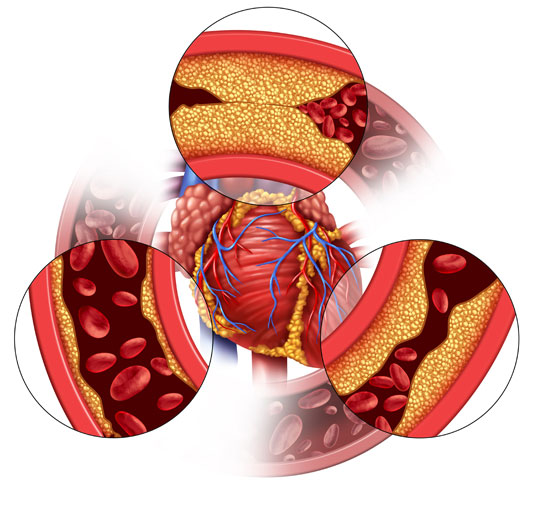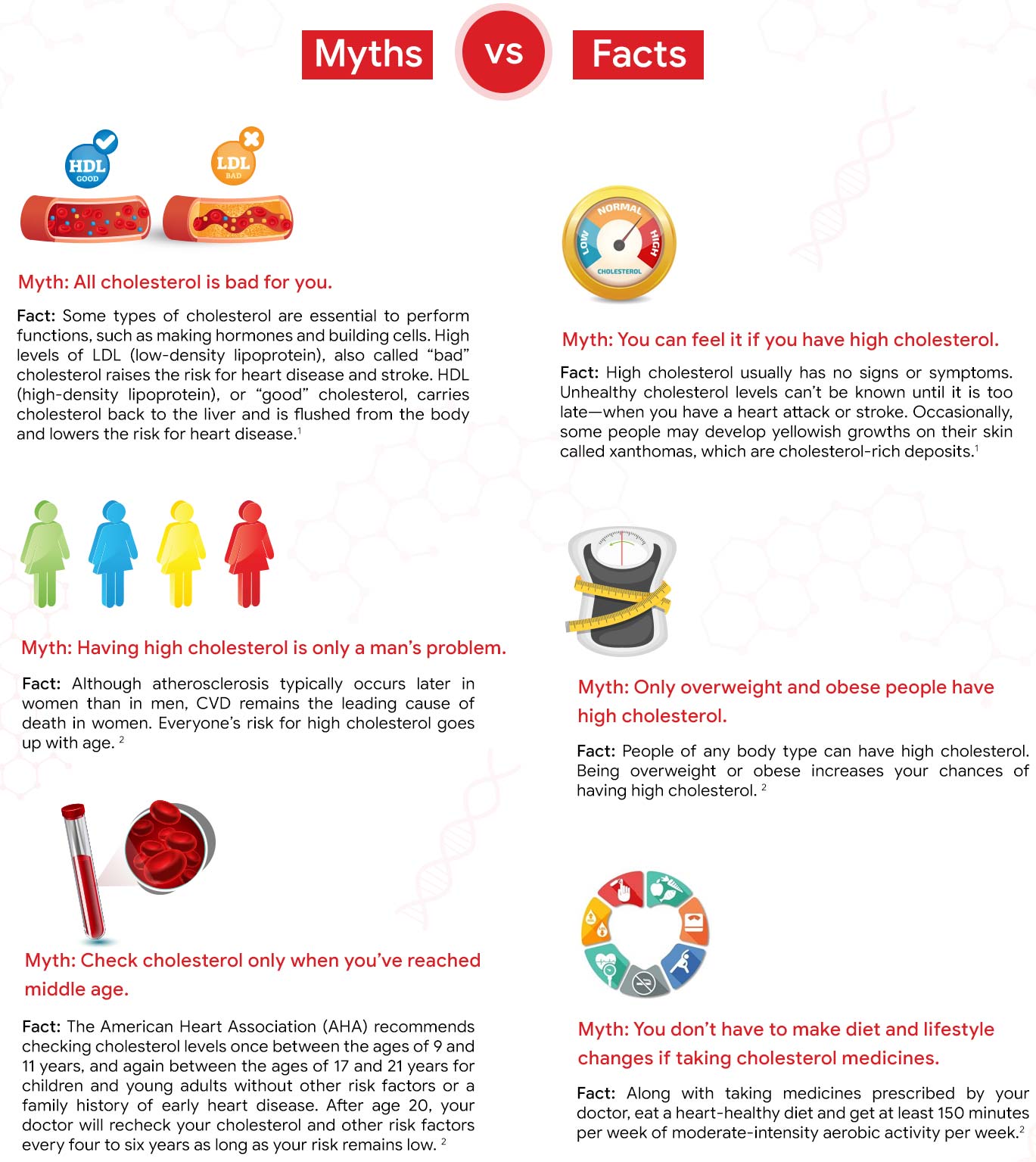


Cholesterol is a waxy, fat-like substance your body produces naturally. It helps make new cells, some hormones, and substances that help digest foods. Cholesterol is part of a healthy body. But having too much of it in your blood can be a problem.
Reference:


Before discussing about the relationship between high cholesterol and heart, it is important to understand what cholesterol is, as there are many myths surrounding cholesterol. Cholesterol is actually a wax-like substance, which unlike most people believe is not inherently “bad”. In fact, it is required by our body to build cells and make hormones and vitamins. But, the problem arises when its level in the blood beyond normal limits. Interestingly, not all cholesterols are bad. Cholesterol is divided into two types – LDL Cholesterol and HDL Cholesterol.
While LDL is considered as ‘bad cholesterol’, HDL is known to be the good cholesterol. The ‘‘good” and “bad” of a cholesterol is dependent on the connection between cholesterol and heart health. It is important to note that a healthy level of the good cholesterol (HDL) may help safeguard heart against attack and stroke while the bad one (LDL) is associated with fatty buildups in arteries (atherosclerosis). High cholesterol has been identified as one of the major controllable risk factors to prevent heart-related complications including heart attack, stroke, and coronary heart disease. Further, risk factors such as high blood pressure, smoking, and diabetes may elevate the risk multifold.
While cholesterol is required by human body to build healthy cells, too much of cholesterol accumulation in the blood can increase the risk of heart disease. High cholesterol gets deposited in the blood vessels as fatty deposits called as plaque. As these deposits grow over time, the supply of oxygenated blood through the arteries gets restricted. High cholesterol causes heart disease by causing narrowing of the arteries, which in turn decreases the flow of blood to vital organs including heart as well as brain and kidneys.
One of the major high cholesterol effects on heart is coronary heart disease (CHD). The narrowing of arteries and blood vessels, and subsequent reduced blood flow to the heart results in angina (chest pain) due to insufficient blood flow to the heart. High cholesterol leads to heart attack when a blood vessel is completely blocked and the heart muscle becomes very weak.
Sometimes, these fat deposits may break suddenly, forming a clot that may result in a heart attack or stroke. High cholesterol is also linked to high blood pressure or hypertension. Hardening and narrowing of arteries due cholesterol plaque and calcium (atherosclerosis) put strain on heart to pump blood through them, thus causing the blood pressure to rise abnormally high.
Generally, there are no obvious highcholesterol symptoms that one can notice, especially when it starts to grow initially. However, its association with certain conditions, including high blood pressure, angina, and stroke among other circulatory ailments warrants attention for high cholesterol.
Having said this, there may be slight indication of high cholesterol symptoms, including:
In addition to this, people with the following risk factors are vulnerable to high cholesterol levels:
It is important to note here, cholesterol levels may become unexpectedly high without warning. Therefore, your doctor may suggest a lipid profile test to minimize the risk, especially if you have above mentioned risk factors.
First of all, everyone over age 20 is advised to get their cholesterol levels checked at least once every 5 years. The timeframe decreases with age and associated risk factors. It is a simple blood test called a lipid or lipoprotein profile, including the following vital statistics:
Next, the cholesterol and heart disease treatment begins with lifestyle changes such as eating a healthy diet, regular physical activity, no smoking, and keeping the alcohol use to the minimum.
Cholesterol treatment for heart disease may comprise medication or a combination of medications, depending on age, overall health status, and possible drug side effects.
Cholesterol medication may include:
These are common cholesterol medications that are prescribed to people for managing cholesterol associated heart disease risk. Most prominently, one should never consider self-medication for treating cholesterol without consulting a medical specialist.
No doubt, high cholesterol can be a dangerous condition, especially in the view of its connection with heart disease. However, the good news is high cholesterol can be lowered and managed, which in turn can help minimize the risk of heart disease.
The rules are simple:
Let us make this very clear.
Don’t become your own doctors. Calculating a heart disease risk is a doctor’s job. You may refer to credible sources like https://www.makingindiaheartstrong.com/ for a generalized idea about your heart disease risk. However, you need an expert or a physician for testing for heart disease.
When you meet your physician, you should ask about your heart disease risk. Based on your symptoms, s/he then might do a physical examination or suggest certain below mentioned tests to confirm the diagnosis:
Lipid profile to test four types of fats:
Noninvasive tests for heart disease
These are tests used to detect your heart health in relation to high cholesterol.
To know more about prevention and treatment of high cholesterol, triglycerides, LDL, HDL, or any heart-related testing or treatment for high heart rate or hypertension, you can visit Making India Heart Strong website, anytime, anywhere. Stay aware to make your heart healthy and live well.
Reference:
The cholesterol test checks your levels of:
Cholesterol is measured in milligrams per deciliter (mg/dL).
Desirable Cholesterol Levels
Reference:


References